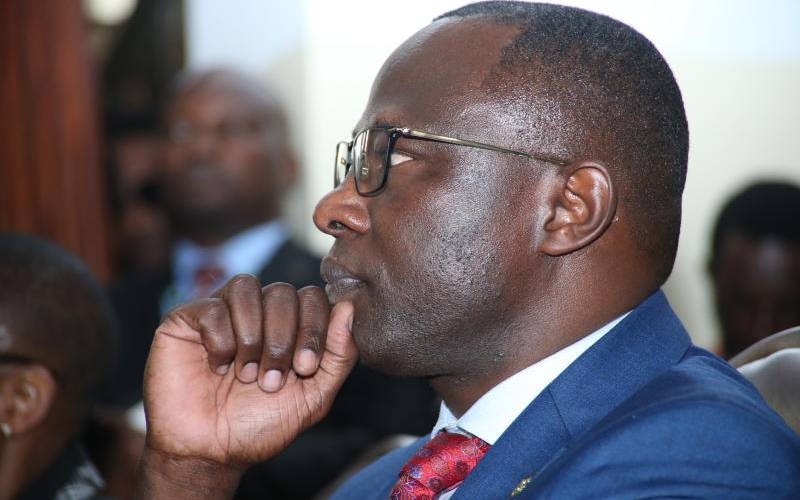Kenya’s 2010 Constitution marked a radical break from the authoritarian legacies of the past. It was more than a legal document, it was a vision for societal transformation. At its core lies the doctrine of transformative constitutionalism, which calls for the reordering of power relations between the state and the people.
This concept requires more than just changing laws. It demands the creation of robust institutions that embed values of accountability, inclusion, and justice into the architecture of governance. In this constitutional vision, institutions are not meant to serve individuals or interests, but to realise enduring ideals that outlast any regime.
Over the years, Kenya’s experience with independent constitutional commissions has been fraught with political tension, nowhere more evident than in the protracted battles over the reconstitution of the Independent Electoral and Boundaries Commission (IEBC).
Though the current commissioners are now in place ahead of the 2027 elections, the political undertones that preceded their appointment exposed deep systemic weaknesses in how independent institutions are treated in the national psyche.
Follow the The Standard
channel
on WhatsApp
Time and again, the fate of such commissions has been entangled in political calculations, as if their legitimacy resides in who occupies them rather than how they function.
This trend is antithetical to the spirit of the Constitution. Article 249 makes it clear that the purpose of commissions and independent offices is to protect the sovereignty of the people, secure democratic values, and promote constitutionalism.
These institutions, while not formally described as a ‘fourth arm’ of government, perform a vital constitutional role akin to such status. They function as oversight bodies, safeguards against abuse of power, and as mechanisms for upholding rule of law.
That they operate independently of the Executive, Legislature, and Judiciary is both a structural design and a political necessity in ensuring checks and balances. But the Kenyan political context has often personalised these watchdog institutions.
Public debate rarely focuses on the processes or legal frameworks that empower such bodies. Instead, attention zeroes in on individuals; who is appointed, where they come from, and whom they are perceived to align with politically.
This reduction of institutions to personalities weakens public confidence and undermines the capacity of these bodies to function with credibility and authority. It contradicts the principle enshrined in Articles 10 and 73 of the Constitution, which affirm that governance should be grounded in integrity, transparency, and service to the public good, not loyalty to persons or parties.
Transformative constitutionalism teaches us that for a constitution to be truly transformative, its institutions must be strong, independent, and grounded in law rather than political patronage. Institutions must be systemised, not personified.
This is not just a matter of democratic theory but a requirement for practical governance. Kenya’s recent history shows that when institutional processes are politicised, whether in electoral management, anti-corruption enforcement, or public auditing, the entire framework of democratic accountability suffers.
What should be public watchdogs become political pawns, and the people’s trust is eroded.
The IEBC, for instance, holds a constitutional responsibility that goes far beyond organising elections. It is charged with guaranteeing the credibility of the electoral process, which is fundamental to democratic legitimacy.
When its formation becomes a contested terrain, the body is stripped of the very neutrality it is supposed to embody.
Though Kenya has now constituted a new IEBC team, the process leading up to it reignited questions about whether the commission can operate with the independence and professionalism required to command universal trust.
The challenge, therefore, is not just to constitute the IEBC, but to embed in it a culture and structure that will endure beyond 2027, an institution that can serve any administration, and all Kenyans, without fear or favour.
The same argument applies across the spectrum of independent offices, from the Auditor-General to the Ethics and Anti-Corruption Commission. Each plays a unique and crucial role in Kenya’s governance architecture.
To restore faith in these institutions, reforms must target the systems that underpin their functionality. This means merit-based recruitment, clear tenure protections, operational and financial autonomy, and robust mechanisms for internal accountability.
Indeed, trust is the most important currency these bodies possess. Without it, even the most well-crafted constitutional mandates will fail to deliver their promise. Trust must be built not on the back of individuals, but through transparent systems and demonstrated independence.
This is what allows institutions to earn legitimacy over time and what allows the Constitution to be felt in the lived experiences of ordinary citizens.
The Constitution of Kenya was not a gift from the State to the people. It was wrestled from decades of struggle and crafted to prevent a return to arbitrary power.
To honour that history, Kenya must now move beyond the politics of appointments and embrace the politics of institutional permanence. We must demand that our watchdogs are not neutered by political expedience, but nurtured as vital organs of the republic.
The ultimate test of our constitutional maturity is not whether we can name who sits in which commission, but whether the systems in place allow those offices to function with accountability.
Transformative constitutionalism calls us to build institutions that serve the nation not its rulers. It calls us to stop asking who is in charge, and start asking what structures are in place to ensure justice, participation, and transparency.
Only then will we truly live under a Constitution that transforms society, not just governs it. This is the constitutional truth.
Follow the The Standard
channel
on WhatsApp
By Evan Ndong


